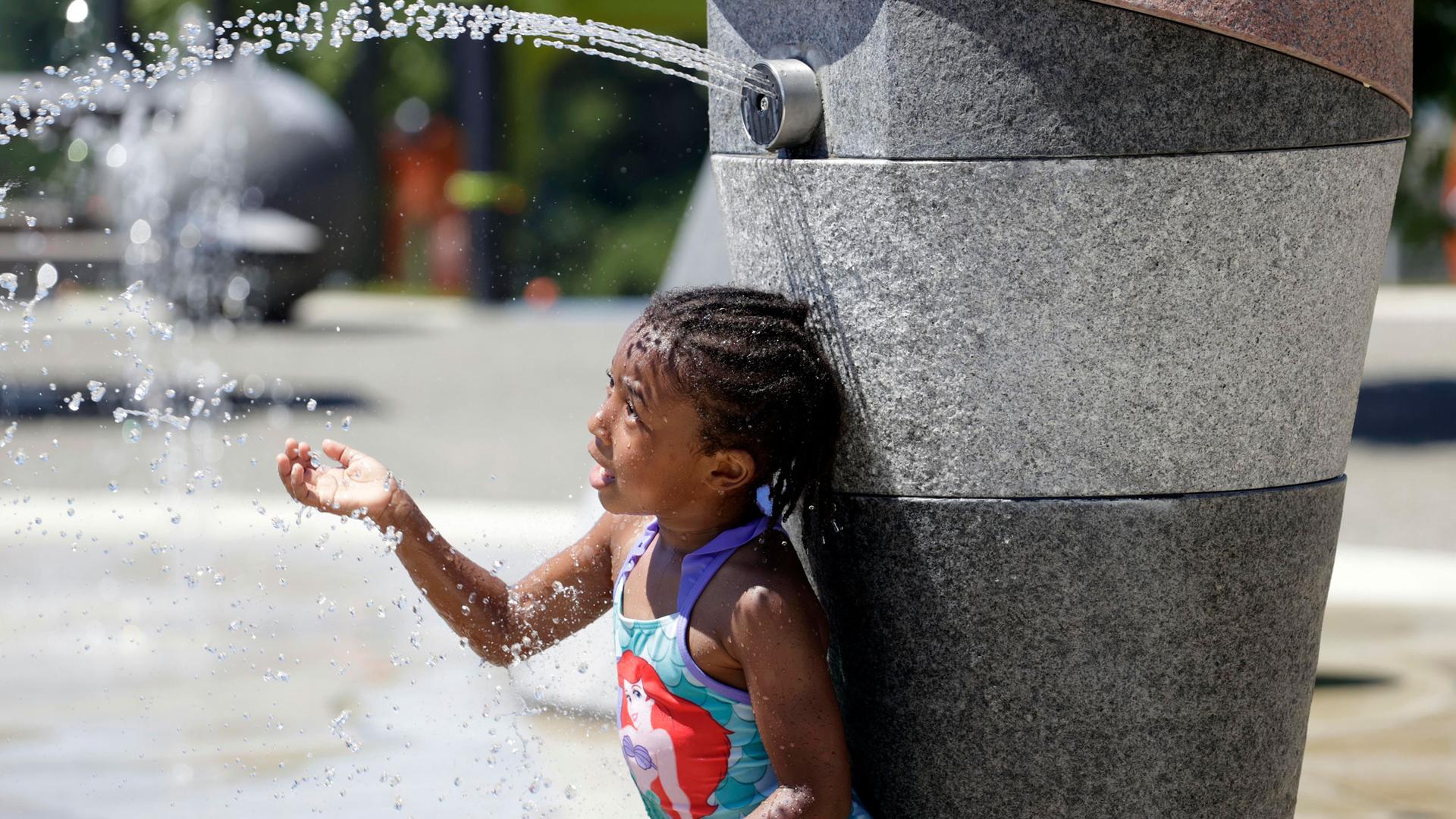Intense. Prolonged. Record-breaking. Unprecedented. Abnormal. Dangerous.
That’s how officials described the historic heat wave hitting Canada and across the Pacific Northwest, pushing daytime temperatures into the triple digits, disrupting Olympic qualifying events and breaking all-time high temperature records in places unaccustomed to such extreme heat.
The heat wave in British Columbia has soared with the temperature in Lytton, a village in the Canadian province, reaching 115 F Sunday afternoon, marking a new all-time high recorded in Canada.
A heat warning is in effect for most of Western Canada and the country’s weather agency says numerous daily temperature records have been shattered across British Columbia.
In the US, Portland, Oregon, reached 112 degrees Fahrenheit Sunday, breaking the all-time temperature record of 108 F, which was set just a day earlier.
In Eugene, Oregon, the US track and field trials were halted Sunday afternoon and fans were asked to evacuate the stadium due to extreme heat. The National Weather Service said it hit 110 F in Eugene, breaking the all-time record of 108 F.
Oregon’s Capital city, Salem, also recorded the highest temperature in its history on Sunday: 112 F, breaking the old mark by 4 degrees.
The temperature hit 104 F in Seattle. The NWS said that was an all-time record for the city better known for rain than heat and was the first time the area recorded two consecutive triple digit days since records began being kept in 1894.
Records were being broken across the region, and the sizzling temperatures were expected to get even hotter Monday before beginning to cool Tuesday.
There were also some power outages. Portland General Electric said about 3,000 customers were without electricity in the greater Portland area Sunday afternoon. Puget Sound Energy reported 3,400 customers down in the greater Seattle area.
It got so hot in Seattle Sunday the city parks department closed a community pool in the southern portion of the city because of “unsafe, dangerous pool deck temperatures.”
King County closed several COVID-19 testing sites because of the heat. Seattle opened additional public library branches Sunday, and will again Monday, to provide additional cooling centers, The Seattle Times reported.
Seattle’s light rail trains may have to operate at reduced speeds because of excessive heat on the tracks, causing delays that could continue into the work week, Sound Transit said Sunday.
The heat wave also moved into Idaho, where temperatures above 100 F are forecast in Boise for at least seven days starting Monday. Ontario, Oregon — a city near the Idaho border — could see at least a week of triple-digit temperatures, including a high of 109 F Wednesday, forecasters said.
Cities were reminding residents where pools, splash pads and cooling centers were available and urging people to stay hydrated, check on their neighbors and avoid strenuous activities.
Still, about 3,000 athletes participated in an Ironman Triathlon in Coeur d’Alene, Idaho, on Sunday. The race start was moved up to 5 a.m. The event includes a 2.4-mile swim, a 112-mile bike ride and a 26.2-mile marathon run (a 3.9-kilometer swim, a 180-kilometer bike ride and a 42-kilometer run).
Race organizers said they had 62,000 pounds of ice at hydration stations, misting stations and chilled towels to hand out to athletes, KHQ-TV reported.
The Coeur d’Alene Fire Department brought in extra firefighters and paramedics because they usually see extra dehydration calls during the event. Rather than a crew of 17 firefighters, they had a crew of 60 on Sunday, KREM-TV reported.
Ironman medical tent coordinator Stan Foster said 525 people were in the medical tent during the 2015 Ironman, when temperatures also rose into the 100s. Five people went to the hospital, he told KREM-TV.
“The biggest thing that we tell people is, No. 1, don’t try to set a record on your race. Go slow. Enjoy your day. It’s going to be hot,” he said. “And then don’t just drink water.”
The National Weather Service in Coeur d’Alene said this week’s weather “will likely be one of the most extreme and prolonged heat waves in the recorded history of the Inland Northwest.”
The scorching weather was caused by an extended “heat dome” parked over the Pacific Northwest. Kristie Ebi, a professor at the University of Washington who studies global warming and its effects on public health, says the dayslong heat wave was a taste of the future as climate change reshapes global weather patterns.
The high temperatures were forecast to move into western Montana beginning Monday.
